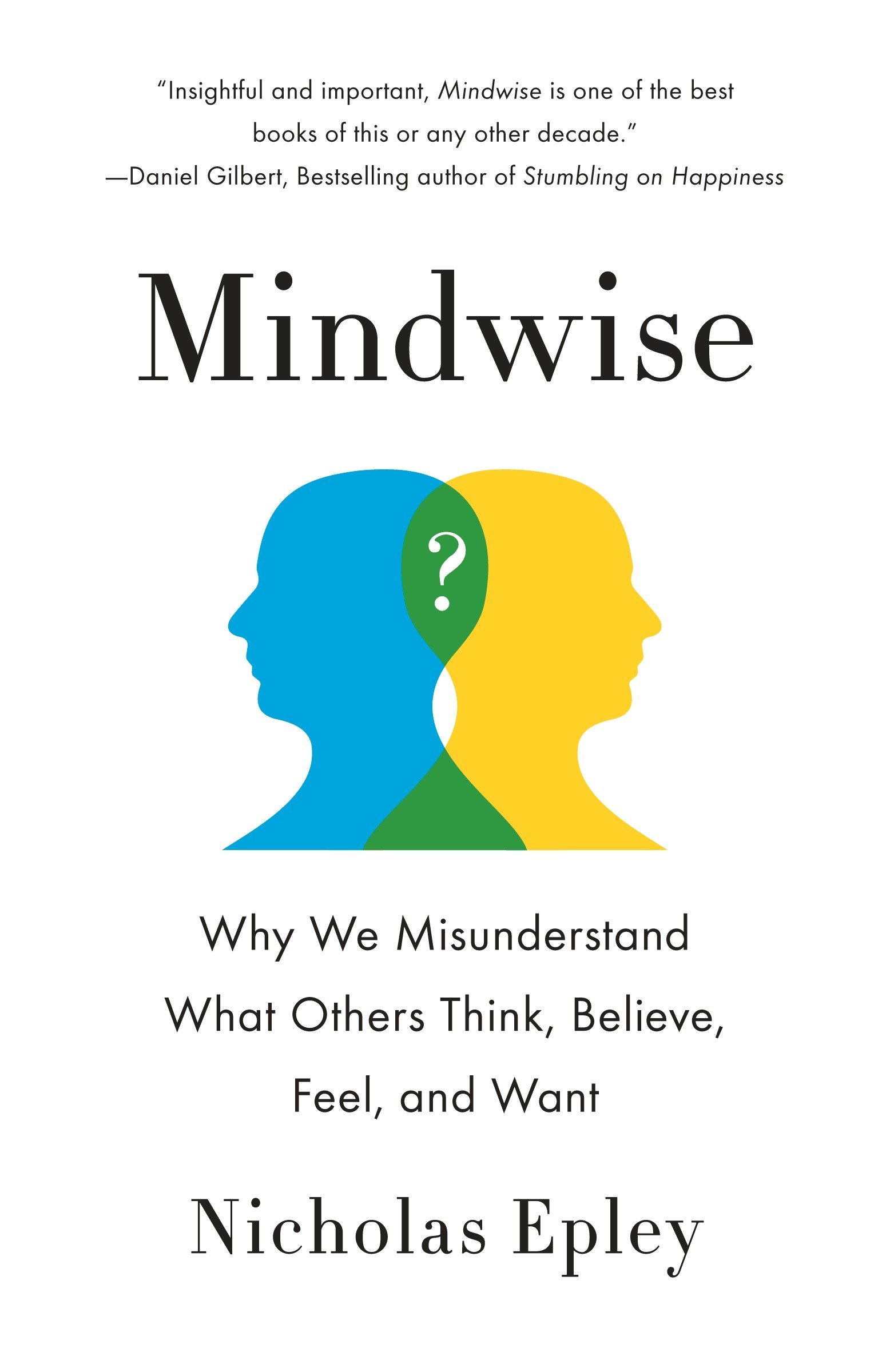Mindwise: Review and Summary Notes

Mindwise: Why We Misunderstand What Others Think, Believe, Feel, and Want by Nicholas Epley

Review
We are extremely overconfident in misreading minds, because we ignore evidence that disconfirms how mistaken we are at predicting other’s minds.
Does it have a mind?
Mindreading Mistakes
- We fail to recognize the other person has a mind when they do
- We think something has a mind when actually it doesn’t (caterpillar with “eye spots” aren’t actually eyes, but just random patterns)
- When selling a car, you should humanize it by telling a story about its personality.
- When buying a car, you should dehumanize it by listing quantitative attributes about it.
Ubuntu: “a person is a person through other persons.” Your humanity comes from the way you treat others, the idea goes, not the way you behave in isolation.
Your ability to engage with the minds of others is one of your brain’s greatest abilities. You’ll be happier if you actually use it: On airplanes, office lobbies, and commuter trains.
Basic mistakes
- Egocentric bias: We project other minds from our own mind
- Neck problem: Two people are seeing different information
- Lens problem: Two people see the same thing but come away with different conclusions
- Stereotypes: We believe the individual is more like the group
- Attribution error from Actions: People who stayed in New Orleans during Hurrican Katrina were not “stupid”, but poor.
Body language isn’t necessarily always a good indicator of someone’s internal emotional state
Perspective taking also doesn’t necessarily bring you closer to the other person’s perspective, in fact it can increase your overconfidence. Perspective getting (asking someone directly about how they feel) is much more accurate.
Egocentric bias:
“How happy are you compared to others?”
People think about their own happiness, not about the average happiness of others. See also birthday paradox.
Same applies to markets: it’s not necessarily about how good you are, you also have to think about how good the rest of the market is.
